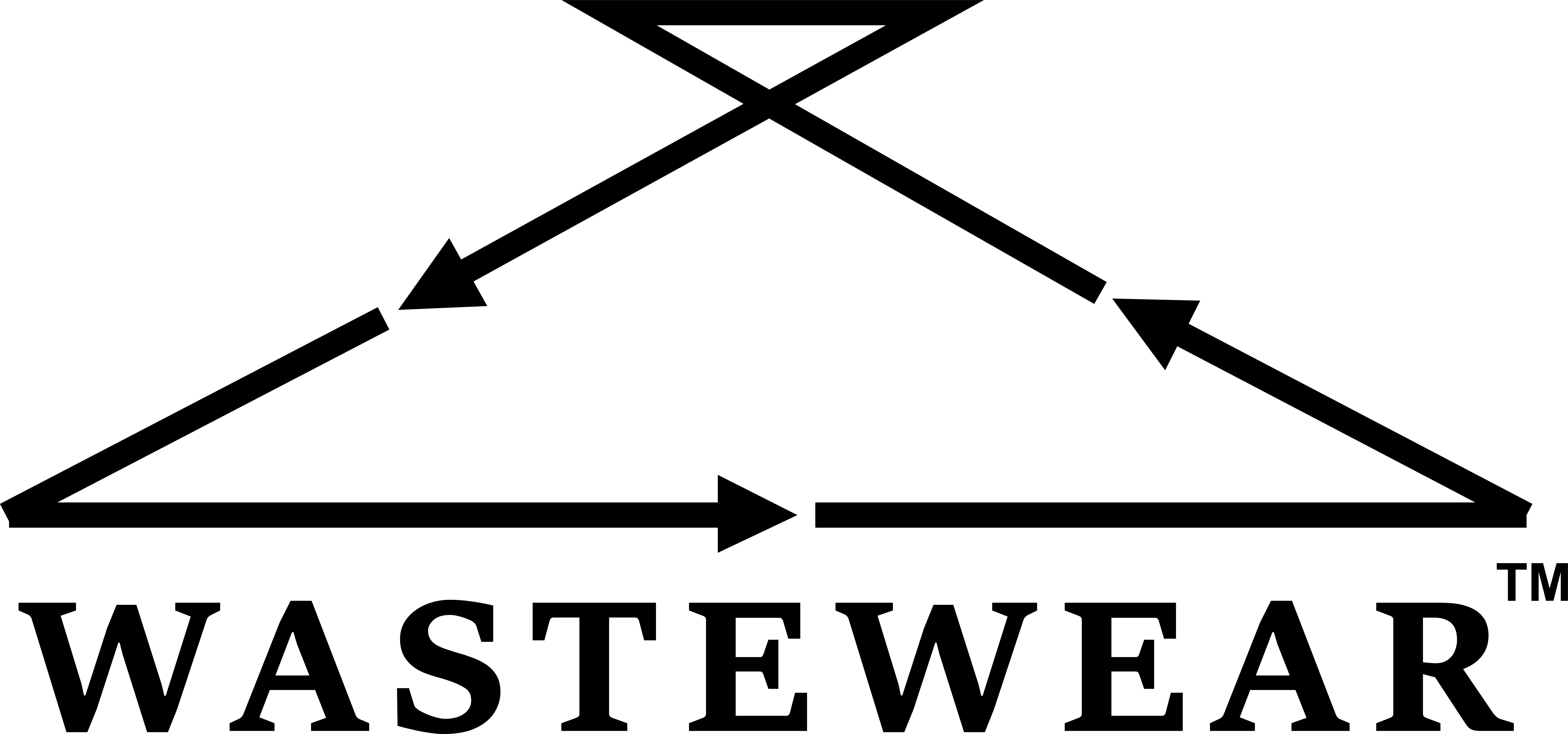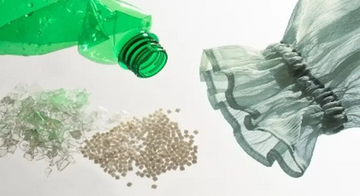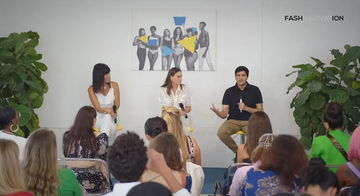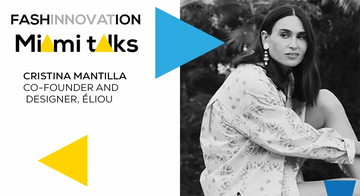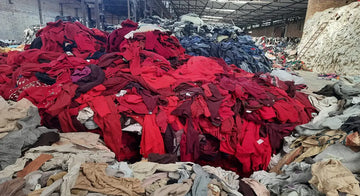With more than 125 brands now committed to the Circular Fashion Pledge, fashion brands dedicated to sustainability are making a strong statement despite the chaos roiling the US and the world. Amid the hard work of anti-racism and the daunting reopening of pandemic retail, we are making the statement that sustainability and equity remain top of mind.
The Circular Fashion Pledge is a simple concept that asks fashion brands to pledge to one or more circularity commitments by the end of the calendar year:
- Enable Take-Back or Resale: “By the end of 2020, launch at least one method or partnership to enable your customers to send-back or resell their used items.”
- Increase Recycled Content: “By the end of 2020, increase the total percentage of certified recycled content or scrap fabric by 10-percent in your top 5 selling items.”
- Design for durability: “By the end of 2020, increase the use of non-blended materials, and/or modularity and repairability in your top 5 selling items.”
The Pledge’s Brand Signatories are approaching these commitments in a variety of ways – and supporting each other’s efforts in the circular fashion community. These are some of the ways in which they are creating a circular fashion industry.
Commitment 1: Enable Take-Back or Resale
On our video chat, ADIFF founder & CEO Angela Luna holds up a stylish off-white canvas bag that looks like an oversized IKEA tote. “We made these by collecting UNHCR [the United Nations’ Refugee Agency] tents that were just going to be bulldozed into a landfill.” Angela’s passion for “rescuing” (sometimes in rather dodgy compliance with in-country regulations) such materials, and employing refugees to help upcycle them, is testament to her commitment to “democratize sustainable ethical fashion.”
ADIFF is a signatory to all three commitments, and Angela has already championed such practices as design for repairability, by stitching where other designers might heat-seam, say, a zipper. But one big program she is piloting is her foray into take-back. ADIFF has launched a take-back program for all t-shirts and soft goods items: if the item becomes ripped or stained in its first two years, ADIFF will upcycle it for you, and sell you a new one at-cost.
Angela describes how challenging it is to scale this program: each garment taken-back for upcycling will be unique, and ADIFF has to figure out how to cut around the stain or rip and upcycle both the scrapped material and the trim and zippers. As ADIFF owns its factory in Athens, Greece, where it employs resettled refugee tailors from Afghanistan, the brand can experiment with different upcycling processes. Designing the garments for durability and repairability certainly helps, but Angela also hopes to learn from others in the Circular Fashion Pledge community who have experience with upcycling.
Commitment 2: Increase Recycled Content
You might say that textile manufacturing is in Uddhav and Vaidehi Bagrodia’s blood. The twin brother and sister recall growing up in their father’s textile factory, jumping into the piles of cotton. As yarn, textile and garment manufacturing has been the family business for more than 35 years, they witnessed firsthand copious amounts of cotton waste.
It is never too early to start being part of the solution. Although the siblings are still undergraduates – Vaidehi is a senior in fashion school in New York, Uddhav in business school in Boston – they partnered to start Wastewear, a clothing and accessories line built from a blend of completely recycled cotton and soda-bottle-polyester, for a 100% recycled fabric that’s as soft and luxurious as virgin material.
Along the way, they have learned much about recycled textiles. For example, cutting a pattern from mélange fabric wastes 20-30% of the roll, due to the orientation of the garment along the fabric’s grain; so they use recycled cotton fiber obtained by recycling the cutting waste. They also vary the percentages in their blends to achieve the right combination of softness and durability; their cotton-rich tote bags, for example, have an almost denim-like stiffness. The siblings are already active on the Pledge’s dedicated Facebook community, where they share their deep knowledge of fiber science. They’re looking to learn more about designing for greater durability in turn.
Commitment 3: Design for Durability
BENDY by Ashbury Skies’ co-founder Mary Sue Papale had been in the shoe industry for years, wondering if there were a more planet-friendly way to make shoes. She and her co-founders created BENDY with sustainability as part of its raison d’être.
They view each material through a sustainability lens. For example, the footbed – the luxurious feel of which is a core part of their customer experience – was made of 5% recycled content when launched, but is now 30% recycled, and will be at 40% by the end of the year. They’ve been able to work with the manufacturer to help innovate the material toward greater sustainability.
One of the key commitments the brand has made is to designing the shoe for durability, repair, and ultimately, recycling. Like Angela of ADIFF, one key decision to improve durability has been nearly eliminating the use of glue. First launched as a glue-free shoe, they now use a little bit to improve the fit, but the shoe can still be taken apart.
They have had some help along the way. For example, Allbirds founder Joey Zwillinger – famous for his open letter to Jeff Bezos asking Amazon to steal not just its designs, but its sustainability ethos – has made good on his promise by sharing with BENDY the supplier relationships for its sustainable EVA foam, which BENDY is launching at the end of this year. As signatories to Pledge commitments #2 and #3, BENDY is also looking to both learn from and contribute to the circular fashion community.
Toward a Collective Circular Fashion Movement
These Brand Signatories hope that the Circular Fashion Pledge helps to advance the circular fashion movement. Uddhav and Vaidehi Bagrodia of Wastewear cited learning about different brands’ approaches to sustainability. They, as well as Mary Sue from BENDY, hope that collective action on concepts like recycled materials can create pressure on material manufacturers to source more sustainably. Angela of ADIFF hopes that we can create the scale to, in her words, “correct the issue of waste that fashion has created.” Their passion, creativity, and hard work leaves us with the hope for a brighter 2021.
Adam Siegel has devoted his career to advancing sustainability, most recently by founding the 2020 Circular Fashion Pledge. He is the former SVP of Innovation, Research, & Sustainability at the Retail Industry Leaders Association, where he built and led the Retail Sustainability Initiative and (R)Tech Center for Innovation.
Asheen Phansey has over a decade of corporate sustainability experience and two decades of work in the biotech, aerospace, and tech sectors. He formerly led sustainability efforts for the $3B software company Dassault Systèmes, named the #1 on the Global 100 Most Sustainable Corporations list by Corporate Knights in 2018, and serves on the board of Net Impact.
